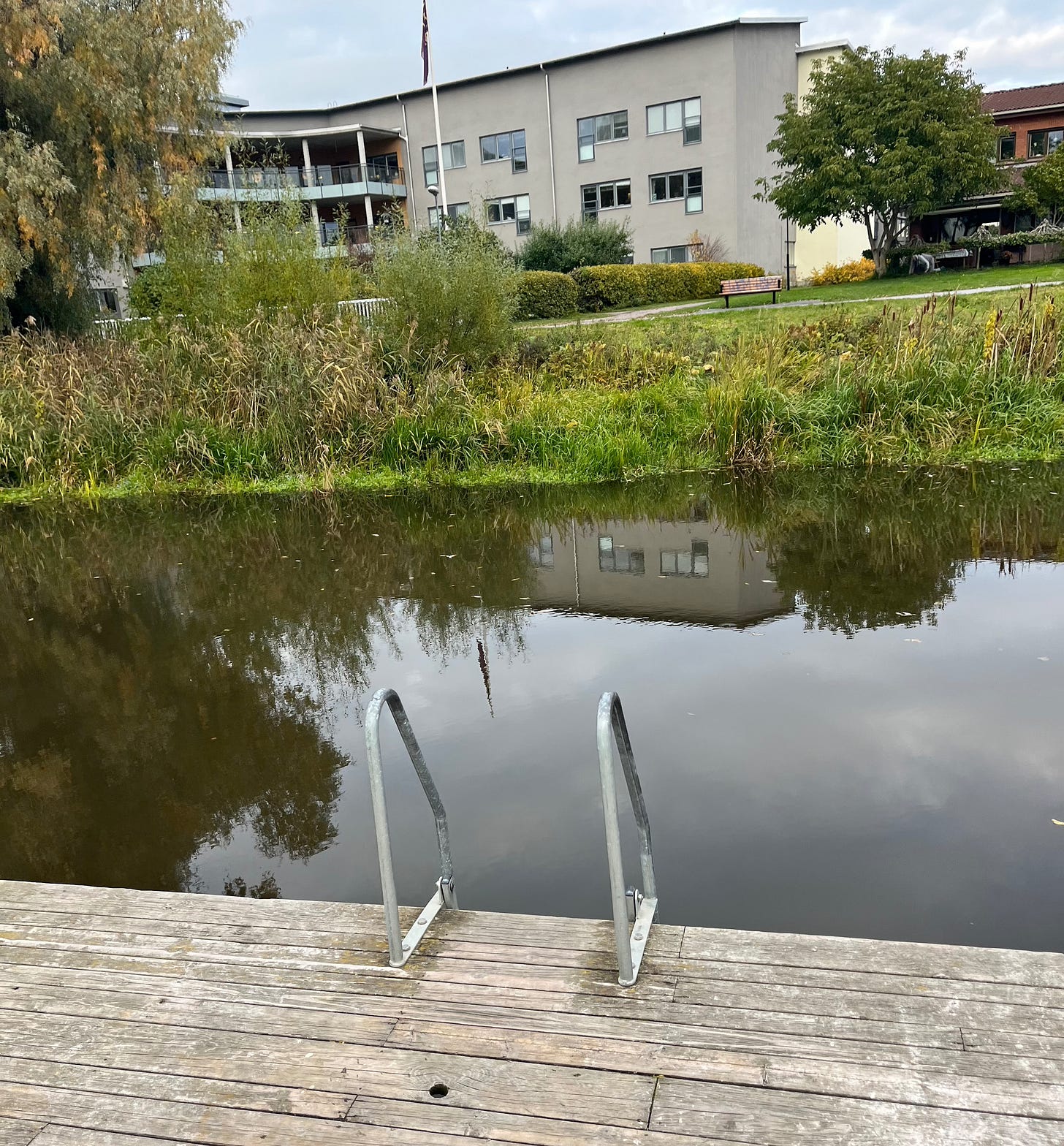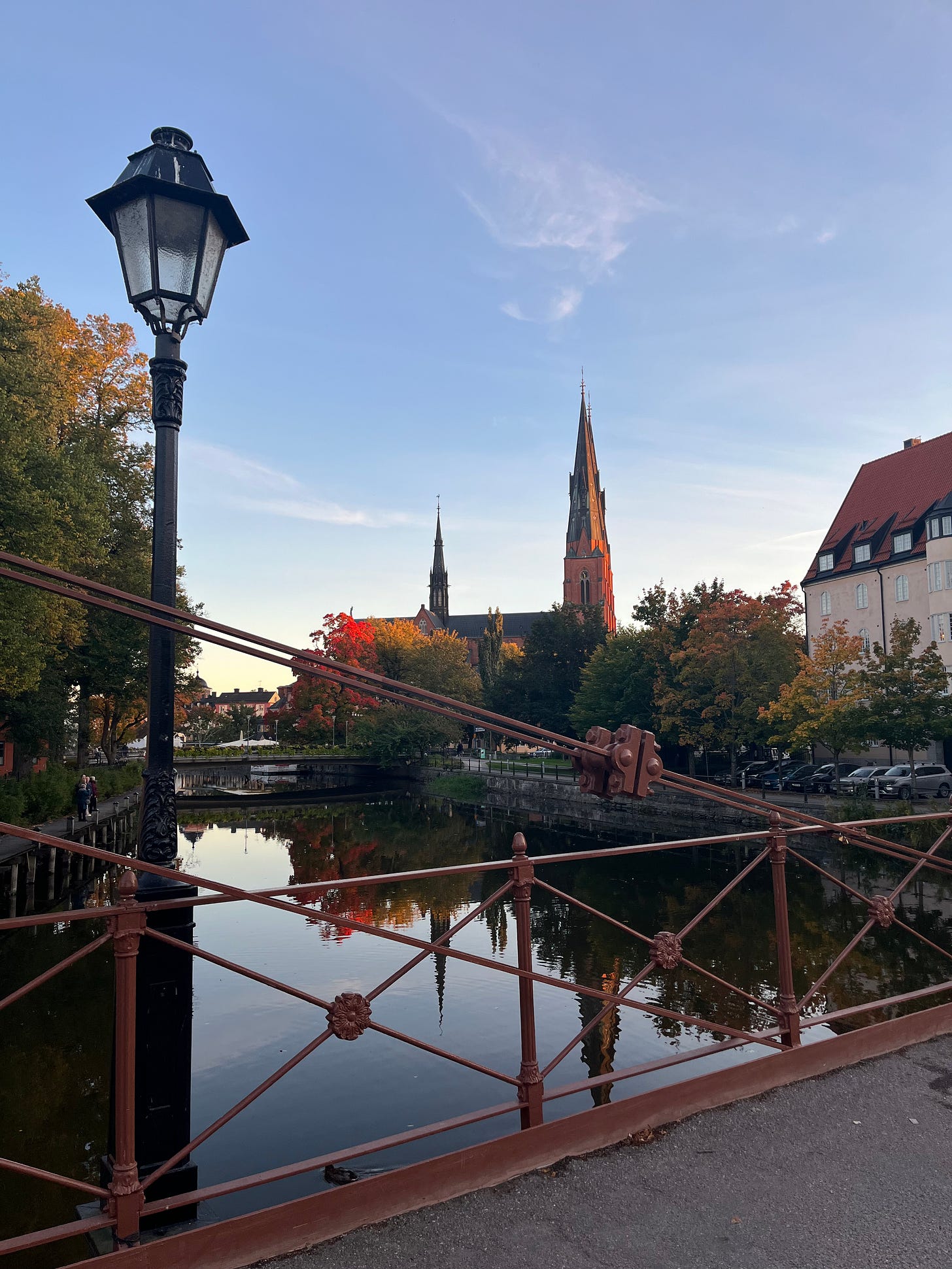New Year, Old Habits
How I reflect on the past year (with questions) and why I want to read fewer books in 2025
Good Morning! Happy new year!
I thought I’d do something a little different for this week, seeing as it is 2025, another year of realising things. I wanted to reflect on planning for the year ahead, setting goals, and being realistic. What I would like to realise, or rather what I have realised and want to internalise, is that new year’s resolutions work best when they piggyback off old year’s resolutions. By this I don’t mean that you should reflect on the past year before your make plans for the year ahead—I hope that goes without saying—but rather, I mean you don’t need new resolutions for every year. Or at all.
I have always been a reflective person, I tend to ruminate over every tiny thing, and the days leading up to the new year have offered me the perfect excuse to get real deep into the nitty gritty and feel good about it (I’ve included some of my favourite reflection questions at the end of this post). When I was younger, I would make the most elaborate lists of goals, the bigger the goals and the longer the list, the better. Of course, I did not reach most of them, as much as I would’ve liked to be editor of a teen magazine at 16. In my early twenties, I started watching a lot of self-improvement YouTube videos, where creators explain research-backed goal setting strategies, and I became the queen of goals for a little while there. I had a super elaborate list of questions to ask myself every December, started setting smart goals and reached many of them. These strategies can be super helpful, seriously, if you actually implement the techniques—but this isn’t what this post is about.
These videos, and books, podcasts, articles, they all operate from the premise that you need to get better, that you need to outperform the old you and create a new you every year. Obviously, this is a very neoliberal and capitalist mindset, wherein growth is the one true value we must all aspire to, regardless of the social and environmental impact of it all. Work more, travel more, buy more, throw more away, look better, be healthier, be more mindful, so you can work more, travel more, buy more… you see where this is going. Hartmut Rosa said that ‘if a society is forced to permanently improve, accelerate, to move forward, but loses the meaning behind this acceleration, then it is in crisis.’1 Constant growth is not sustainable, not politically nor personally. At the same time, to completely let go of goal setting as a rebellion against neoliberalism also doesn’t work for me; and a lot of self-care trends in the past years had me focussing a little too much on doing only exactly what I want to be doing, in the name of ‘protecting my peace’. I like the reflections and I like to be mindful of the things that make me happy, and it can be difficult to find a middle ground.
So instead, in recent years, I started to look at what I really liked doing the past year, and I made a plan to continue to do it. Not more of it, just the same, and sometimes even less of it. This year for example, I read 57 books, this number has been roughly the same for 4-5 years. The goal I set on Goodreads is usually 52, and I normally surpass it by a couple. For the next year, I have decided to read less. Ironic, I know, since I just started this Substack to post weekly book reviews—if I can’t hit my 52, I’ll just have to write more essays. But seriously, I noticed this year that I was ploughing through some of the books because I was feeling rushed to get started on the next book, because everybody was talking about it, because I had yet to read the book for my next book club, or literally because my library hold came through and I wanted to borrow something. None of these are good reasons to rush a good book, one that should be savoured, a story that’s meant to be sat with, pondered over. So next year, I want to read less and more slowly. I might not set a Goodreads goal at all actually!
I still set goals, some of them might even be a little ambitious, but when they are, it’s more about the quality than quantity. Rather than saying I want to go swimming 5 times a week, for instance, a few years ago I had a list of bodies of water and weathers that I would like to swim in. One day, on holiday by the sea, it was raining. I could’ve stayed in and had a perfectly lovely day of reading, but because of the list, I was inspired to go out anyway and run into the sea, already wet from the rain, and had one of the most glorious swims of the year. That same list, though I wrote it two years ago, had me climbing into an ice-cold river in Sweden (pictured above, and again more honestly below) in October this year, with a new friend, and we had an absolute blast. It was one of the coldest waters I’d ever swam in (though I’m not sure our quick dip counts as swimming) and is one of the fondest memories of this year. I like to be pushed out of my comfort zone every now and then, that’s not why I’m tentatively anti big goals, I just want the pushing to be meaningful and not driven by the always just out of reach goals of perpetual growth.

To let my new year be inspired by the past year, then, I look to my wins instead of my short comings, I focus on what I enjoyed and the people and activities I felt connected to, and I don’t dwell as much anymore on what didn’t work out. 9 times out of 10, the goals I set that I didn’t reach didn’t really align with my values anymore anyway, and that’s why I didn’t work towards them (there are cases where ‘the thing’ is just really difficult to do for a variety of reasons, and I too have something I try to do every year and have yet to succeed, but that’s the exception I would say). If things matter to you (and you are able to do them), chances are you will do them, if they’re on the list or not. Of course, a list of resolutions can also be like a to-do list, with the ultimate satisfaction being to check off items one by one at the end of the year. I have no intention of taking that from you. For me, the list is like a little archive of who I was a year ago, and I love to take some time to think about what has changed, and whether I am happy with those changes or lack thereof. If yes, great, I keep the list similar, if not, sure, I’ll pop down a new goal. But I won’t let the list nor the constant screams of ‘new year, new me’ dictate how I live my life.
Questions I ask myself in my yearly reflections:2
What were the highlights of the past year? (This can include experiences, achievements, and the tiniest little things. Last year a new apple crumble recipe made my list.)
What habits have worked well? (Include new and old habits, look at if they served their purpose and if you were able to stick to them.)
Did I reach last year’s goals? If not, why not? If I want to try again or am in the process of reaching them: does this goal still align with my values? What needs to change for me to be able to reach the goal?
Am I mentally where I want to be? (For example, do I feel generally content with my life, do I feel connected to my friends or partner(s), do I feel fulfilled by how I spend my time?)
Am I physically where I want to be? (For example, do I like the way my flat/room looks, do I like the city I live in, do I like the things I surround myself with, but also, do I like my current haircut, do I like my clothes, etc. Please don’t use this question to make yourself feel bad about your body, though.)
Questions to help plan the year ahead:
Are there things that worked well last year that I want to keep doing?
Are there any big life events planned for the year ahead? What do I need to support myself in this phase of transition? (This can include graduations, travel plans, weddings, moving cities, etc.)
Are there concrete goals I want to set that emerged from the reflections? If yes, what would achieving this goal bring me and what steps do I need to do to reach the goal?
What theme do I want to guide me through the new year? (I treat this one as a summary of what I want to bring into the new year. Past examples have included focus, ease, and connection.)
I would love to hear how you approach your reflections and goal setting, let me know in the comments! I wish you a happy new year!
Thank you for reading this slightly different newsletter, and see you next time.
From Hartmut Rosa: Demokratie braucht Religion, 2022, Kösel, p. 22. Quote translated by me.






